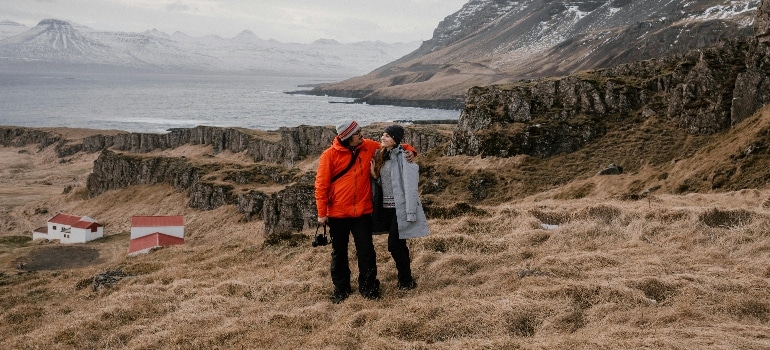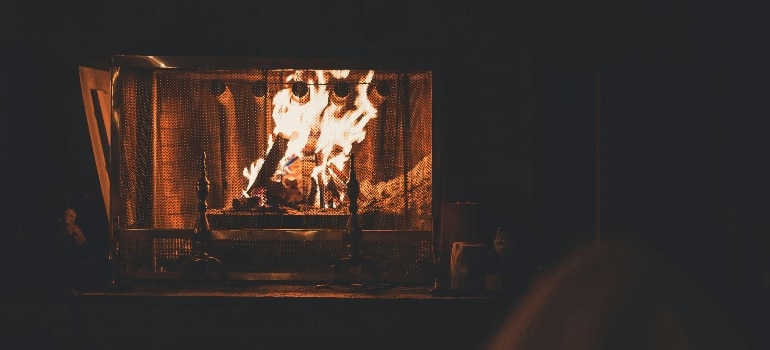Embracing the Nordic Lifestyle: What Expats Should Know Before Moving to Norway

Get a Free Moving Quote Now!
Start Your International Moving Journey





Embracing the Nordic Lifestyle involves embracing balance, unity, and strong community ties. Norway draws many expats because of its high living standards and a strong focus on personal well-being. Locals respect time off work, value outdoor adventures, and appreciate social norms that encourage respect for each person’s space. Work-life balance often trumps material pursuits, and people treasure every chance to experience nature’s wonders. That explains why so many newcomers feel inspired. They sense that living the Nordic Lifestyle can redefine their priorities and create a healthier outlook. People often seek assistance from international movers when relocating because they want dependable shipping options. These specialized services help protect possessions. That way, expats can focus on adjusting to new surroundings rather than juggling complicated tasks on their own.
Understanding the Core Values of Nordic Culture
Norwegians follow Janteloven, a set of social guidelines that promote modesty. It discourages bragging and keeps competition in check. Locals respect each other’s privacy. Community living also thrives because everyone understands the importance of shared responsibility. Politeness remains strong, and people show courtesy in everyday interactions. This simple code underlines Nordic Culture and Traditions, which highlight equality and unity.

Many Americans find these values appealing. They often want a quieter environment that nurtures harmony. People who are moving to Europe from USA discover that the Norwegian approach feels steady. Public discussion includes an overall desire for fairness, without showy demonstrations of success. Humility is admired, and that stance influences how Norwegians treat friendships and work relationships.
Here is a quick bullet list of elements that characterize this distinct culture:
- Strong emphasis on fairness and humility
- Deep respect for nature and the idea of friluftsliv
- Notable work-life balance with shorter hours
- Openness to family well-being, paid leaves, and childcare
- Reserved social behaviors that shift once trust builds
Embracing the Nordic lifestyle means respecting these unwritten rules. Challenging them outright can seem rude. Taking time to observe local behaviors can help. Expats who appreciate communal ideals often adjust quickly. They learn how to engage in daily dialogue without dominating the conversation. That sense of mutual respect helps everyone feel heard. Transparency reduces tension. An open, trusting mindset makes many expats feel welcome.
Work-Life Balance in Norway: What Expats Should Expect
Employees in Norway often work shorter hours than their counterparts elsewhere. Work culture sets clear boundaries, so people can spend more time at home. Paternal leave is generous, allowing fathers to share childcare duties. Paid vacations become the norm, which encourages everyone to spend more time with friends or family. That fosters energy and productivity because workers feel rested.
The Norwegian system rewards strong job security. This arrangement boosts morale and helps employees relax once they leave the office. Many Americans who are moving to Norway notice that off-duty hours receive high respect. Colleagues rarely invade private time. Managers support a healthy balance. This approach reflects Nordic culture and traditions that treat personal and professional life with equal importance.

Flexibility remains widespread. Some positions permit remote work, and others allow varied start times. Employers recognize that well-rested staff make fewer errors. These patterns shift how ex-pats plan their daily routines. Many find more opportunities to explore personal hobbies, social events, or outdoor trips. That new pace feels refreshing. Tighter workdays also motivate individuals to manage tasks more efficiently before clocking out.
Friluftsliv: The Norwegian Love for the Outdoors
Friluftsliv represents open-air living through outdoor recreation. Norwegians visit forests, mountains, and coastal areas for exercise and mental relaxation. Hiking and skiing remain popular, especially when winter arrives. People dress properly and set out for fresh air. This tradition runs deep. It reveals the Scandinavian way of life, where nature becomes a source of comfort and inner peace.
Many Americans hope to capture these moments. They discover that weekends spent trekking or camping can boost mood. Locals often plan group activities on trails, which fosters friendships. Some who consider moving to Iceland later notice a similar ethos there. Nordic countries share an appreciation for scenic exploration, though each region has its quirks. Norway’s terrain offers dramatic fjords, mountains, and glacial valleys.

Embracing the Nordic lifestyle means adopting outdoor habits. Short hikes or casual walks near the sea add variety. People recommend layering clothes so that unpredictable weather doesn’t spoil outings. Fresh air helps reduce stress and brighten spirits. This attitude even shapes how offices schedule breaks. Some workplaces encourage stepping outside during midday. That simple habit keeps the energy high and sparks creativity.
Navigating the Social Scene in Norway
Norwegians can appear reserved when first meeting them. Small talk may feel limited, and friendly banter can seem minimal. However, deeper bonds often emerge once trust forms. Patience proves helpful. Approaching locals through mutual interests can spark camaraderie. Outdoor clubs, volunteer groups, or language gatherings offer perfect opportunities. Social ties often begin with shared activities.
Expats who want to expand their social circles could consider meetup events or local sports. Mutual hobbies create natural connections, which leads to lasting friendships. Many new arrivals adapt by visiting cultural festivals or small celebrations. These gatherings reveal local customs and give everyone a chance to connect with neighbors.
Some newcomers ship personal belongings using container shipping solutions, which simplify large deliveries. That helps them settle faster. They can arrange household items, decorate a new space, and then focus on building connections. Adapting to life in Norway involves learning social etiquette. People value punctuality. Being late can seem rude. Respect for personal space also matters. Maintaining personal boundaries shows thoughtfulness, and that approach wins appreciation from potential friends.
The Role of Hygge in Daily Life
Hygge creates feelings of coziness, warmth, and togetherness. Norwegians enjoy lighting candles, curling up under blankets, and sharing comfort food in quiet settings. This tradition meshes perfectly with life as an expat in Norway, because new arrivals can find security in small rituals that reduce stress. Close gatherings at home or in a cabin help people decompress. The darkness during winter months prompts more focus on indoor relaxation.
Many set the mood with soft lighting or calm music. They also treat themselves to warm beverages or hearty meals. That soothing environment encourages reflection. Expats who adopt hygge experience a sense of belonging. That practice also fosters emotional wellness. It eases the transition process. It encourages a slower pace and deeper relationships with those around you.
Settling in can feel simpler when using packing services for overseas shipping. Professionals handle delicate items and keep them safe. That way, expats can bring personal belongings that help create a hygge vibe. Familiar items spark comfort and remind them of home. Coordinating the shipping process well ensures that everything arrives on schedule. Expats can then focus on designing a cozy space that suits Nordic living.

Coping with Norwegian Winters and Darkness
Norwegian winters and how to cope with the long dark months become major points of discussion. Darkness persists for extended periods. Temperatures dip. Some regions experience polar nights. Many locals rely on light therapy lamps or special bulbs to maintain healthy serotonin levels. Doctors advise regular outdoor exercise if possible, even during brisk weather. Physical activity helps combat fatigue and mild depression.
Gatherings and social activities also become important. Friends might organize small dinner parties. Others join clubs to avoid feeling isolated. Winter sports help many people stay active. Skiing draws large crowds, with many resorts welcoming newcomers. This approach helps people keep their spirits high. Some short trips to southern countries also provide relief. That escape offers extra sunlight.
Financial planning for relocation often involves calculating international moving cost. Airfare, shipping fees, and housing deposits can add up. However, the emotional readiness for winter also matters. Comfort items, warm clothing, or even specialized lamps should factor into budgets. Creating a plan prevents last-minute surprises. People who prepare feel more at ease once the dark season arrives.
Learning Norwegian: Do You Need to Speak the Language?
Norway’s workforce speaks English well. Many expats find work in international offices without major language hurdles. However, local friendships can flourish faster when visitors speak at least some Norwegian and it can help in embracing the Nordic lifestyle. Work opportunities often increase because employers like staff who connect with colleagues in their native tongue. A strong command of Norwegian also opens certain professions that serve the local public.
Full fluency may not be mandatory in every field. Yet a basic understanding makes daily life smoother, especially during errands. Some struggle with advanced grammar, but practice helps. Language schools offer flexible courses. Free conversation clubs exist too. Speaking improves social ties and boosts confidence. People who make an effort see better integration results.

Shipping sensitive items, such as artwork or collectibles, may require fine art shipping services. Those specialized providers safeguard valuable pieces and navigate customs paperwork. Expats with art backgrounds often collaborate with galleries or exhibitions in Norway. Speaking local phrases can help them connect with event coordinators, potential buyers, or art enthusiasts. That cross-cultural exchange fosters richer experiences and further types of cements their place in Norwegian society.
The Cost of Living in Norway: What Expats Should Know
Housing remains pricey in urban areas. Oslo’s city center features apartments that often cost more per month than suburban alternatives. Groceries include local goods but also imported products, which raises pricing. Restaurants sometimes charge high rates, so many people cook at home. Public transportation is efficient, yet tickets add up during daily commutes. Expats must plan carefully. They can still find strategies that help stretch finances.
Some find ways to share housing or choose less central districts. People may buy season tickets for trains and buses to cut costs. Others frequent discount supermarkets. Eating out becomes a special treat rather than a regular occurrence. Those who enjoy Embracing the Nordic Lifestyle learn that social events at home can be fun and less expensive. Everyone contributes food or drinks, which fosters a sense of community without huge bills.
Budgeting helps control expenses. Families often create monthly spreadsheets for better oversight. Childcare fees may appear high, but government subsidies can help parents who qualify. Bringing personal goods during relocation can save money since shopping for new furnishings in Norway can be expensive. Some buy used items through local platforms. Patience often pays off. Temporary solutions might fill the gap until finances settle.

Family Life and Raising Kids in Norway
Norway promotes supportive social policies that make family life smoother. Parents can access subsidized daycare centers. Schools offer modern facilities and skilled teachers. Children engage in outdoor activities, even in colder seasons, which nurtures resilience. This approach encourages healthy growth and fosters a sense of responsibility. Daylight might be limited in winter, but schools compensate with creative indoor projects and occasional fresh-air sessions.
Free education continues through high school. Many parents value that. Higher education often has minimal fees at public universities. That structure appeals to Americans who seek stable learning environments for their kids. Family-friendly services appear in libraries, museums, and community centers, where children can explore a wide range of topics. Parents meet each other during these outings, which strengthens local ties.
Work arrangements benefit many parents. Paid paternal leave, already mentioned, keeps dads involved. Telecommuting options help with childcare scheduling. Some offices offer flexible hours, which helps parents pick up children after classes. Everyone respects the importance of personal obligations. This balanced perspective fosters happier households. People often remark on how children grow up with a sense of security and self-confidence. That stable foundation shapes them for adulthood.
Embracing the Nordic Lifestyle as an Expat
Embracing the Nordic Lifestyle means recognizing that harmony, fairness, and community can guide daily decisions. Expats who embrace those concepts might experience positive shifts in how they view work, home, and personal growth. Active engagement with nature offers renewed energy, while social norms reward respect and cooperation. Hygge moments deliver peace, and strong family support systems ease major transitions. Many Americans appreciate Norway’s slower pace. They find comfort in balanced schedules. They appreciate an environment that promotes healthy living, both indoors and outdoors. People forge friendships through shared interests. These concepts can reshape perspectives and habits. Moving abroad sparks change, and Norway stands ready to offer new beginnings. Those who fully immerse themselves often find a deep sense of belonging that extends well beyond their initial arrival.
